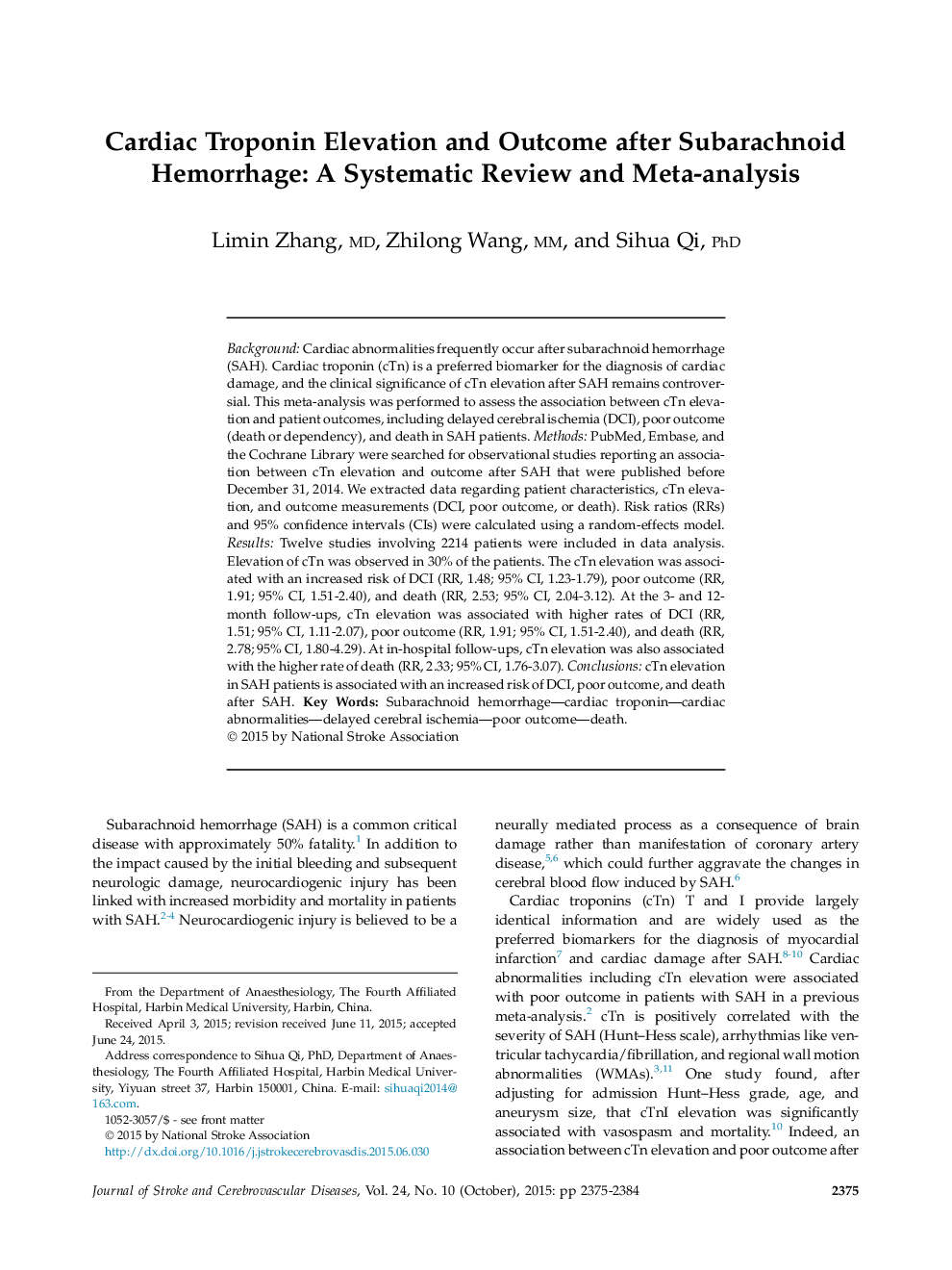| Article ID | Journal | Published Year | Pages | File Type |
|---|---|---|---|---|
| 2709980 | Journal of Stroke and Cerebrovascular Diseases | 2015 | 10 Pages |
BackgroundCardiac abnormalities frequently occur after subarachnoid hemorrhage (SAH). Cardiac troponin (cTn) is a preferred biomarker for the diagnosis of cardiac damage, and the clinical significance of cTn elevation after SAH remains controversial. This meta-analysis was performed to assess the association between cTn elevation and patient outcomes, including delayed cerebral ischemia (DCI), poor outcome (death or dependency), and death in SAH patients.MethodsPubMed, Embase, and the Cochrane Library were searched for observational studies reporting an association between cTn elevation and outcome after SAH that were published before December 31, 2014. We extracted data regarding patient characteristics, cTn elevation, and outcome measurements (DCI, poor outcome, or death). Risk ratios (RRs) and 95% confidence intervals (CIs) were calculated using a random-effects model.ResultsTwelve studies involving 2214 patients were included in data analysis. Elevation of cTn was observed in 30% of the patients. The cTn elevation was associated with an increased risk of DCI (RR, 1.48; 95% CI, 1.23-1.79), poor outcome (RR, 1.91; 95% CI, 1.51-2.40), and death (RR, 2.53; 95% CI, 2.04-3.12). At the 3- and 12- month follow-ups, cTn elevation was associated with higher rates of DCI (RR, 1.51; 95% CI, 1.11-2.07), poor outcome (RR, 1.91; 95% CI, 1.51-2.40), and death (RR, 2.78; 95% CI, 1.80-4.29). At in-hospital follow-ups, cTn elevation was also associated with the higher rate of death (RR, 2.33; 95% CI, 1.76-3.07).ConclusionscTn elevation in SAH patients is associated with an increased risk of DCI, poor outcome, and death after SAH.
